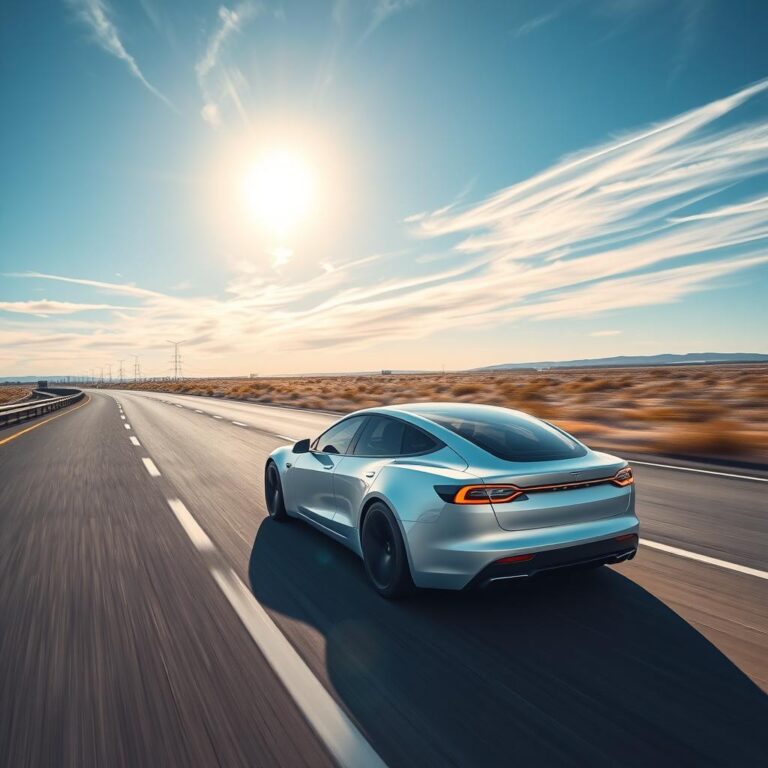Are Tesla Cars Reliable?
Are Tesla Cars Reliable? Let’s Take a Closer Look
When it comes to buying a car, reliability is one of the most important factors. After all, no one wants to be stranded on the side of the road with car trouble. If you’re considering purchasing a Tesla, you may be wondering, “Are Tesla cars reliable?” It’s a great question, especially given Tesla’s reputation for innovation and cutting-edge technology. Let’s dive into the reliability of Tesla cars and see how they stack up against the competition.
What Makes Tesla Cars Different?
Tesla cars are known for their advanced technology, including impressive features like Autopilot, Full Self-Driving (FSD) capability, and a sleek, modern design. But when it comes to reliability, how do these vehicles fare? While Tesla’s focus on technology and innovation is remarkable, some owners have experienced issues that may affect their view on reliability. So, let’s break down the different aspects of Tesla’s reliability.
Reliability of Tesla’s Electric Powertrain
One of the major selling points of Tesla cars is their electric powertrain. Unlike traditional internal combustion engine (ICE) vehicles, Tesla vehicles don’t have the complex moving parts that can fail over time. There are no oil changes, no spark plugs, and fewer parts that wear out. This can contribute to greater reliability in the long run, as electric motors are generally less prone to failure than combustion engines.
However, while the electric motor itself is reliable, the battery plays a crucial role in overall performance. Tesla has a solid reputation for providing long-lasting batteries, and many owners report that their vehicles continue to perform well for hundreds of thousands of miles. In fact, Tesla’s battery packs have been known to last between 300,000 and 500,000 miles, depending on the model.
How Reliable Are Tesla’s Software and Technology?
Tesla’s software is one of the most unique aspects of their vehicles. The company regularly updates its cars via over-the-air updates, which allows Tesla owners to receive new features and improvements without ever visiting a service center. This software-driven approach gives Tesla an edge over many other automakers. However, some owners have reported bugs, glitches, and issues with the Autopilot system and other software-related features.
While these issues are usually addressed through software updates, they can still be a source of frustration for owners. Additionally, the Full Self-Driving capabilities, which are still in beta, have raised concerns about safety and the reliability of the system. Although Tesla continues to improve its self-driving technology, it’s not perfect yet, and some users have experienced challenges with its reliability in real-world conditions.
How Does Tesla Compare to Other Automakers?
When we think of reliable vehicles, brands like Toyota, Honda, and Ford often come to mind. These automakers have decades of experience in building cars that are reliable and long-lasting. But how do Tesla cars compare to these traditional brands in terms of reliability?
Consumer Reports and Reliability Ratings
Consumer Reports, one of the most trusted sources for vehicle reliability ratings, has given mixed reviews on Tesla’s reliability. While Tesla’s cars score high in terms of performance and satisfaction, they often fall short in categories like build quality and fit and finish. For example, issues with paint quality, trim pieces, and body panel alignment have been noted by some owners. These cosmetic concerns may not affect the overall performance of the car, but they can contribute to a less-than-ideal ownership experience.
That being said, Tesla has made significant strides in improving its reliability over the years. The company’s Model 3, for example, has received much better reliability ratings than earlier models like the Model S and Model X, which had more frequent issues with electronics, doors, and suspension components.
Maintenance and Repairs
Another factor that impacts reliability is maintenance. Tesla cars generally require less maintenance than traditional gas-powered vehicles. Without an internal combustion engine, there’s no need for things like oil changes, timing belt replacements, or exhaust system repairs. Tesla cars also feature regenerative braking, which reduces wear on brake pads and extends their lifespan.
However, when repairs are needed, they can be expensive. Tesla’s reliance on high-tech components means that repair costs can be higher compared to traditional cars, particularly if parts like the battery or electric motor need to be replaced. Tesla’s service centers are the primary places for repairs, and while the company is expanding its network, wait times for service can sometimes be longer than expected.
Common Issues with Tesla Cars
While Tesla vehicles are generally reliable, some common issues have been reported by owners:
- Paint and Body Issues: Some Tesla owners have reported problems with the paint quality, such as chipping, scratches, or uneven finishes.
- Trim and Fit Problems: Issues with trim pieces and panel alignment have been noted, especially on early production models.
- Software Bugs: Although Tesla regularly updates its software, some users have experienced bugs or glitches with the vehicle’s tech features, including the Autopilot system.
- Suspension and Steering Components: Certain Tesla models, particularly the Model S, have had issues with suspension and steering components, although these problems appear to be less common in newer models.
How to Maintain Your Tesla for Better Reliability
Although Tesla cars are designed to be low-maintenance, there are still a few things you can do to keep your vehicle running smoothly and ensure better reliability:
- Regular Software Updates: Make sure your Tesla is regularly updated with the latest software to keep the vehicle’s systems running optimally.
- Inspect the Tires: Like any car, Tesla vehicles require tire maintenance. Check the tires regularly and rotate them to ensure even wear and tear.
- Battery Care: Although Tesla’s batteries are designed to last a long time, it’s important to avoid charging to 100% regularly and to avoid letting the battery level drop too low to maintain its longevity.
- Regular Service Checks: While Teslas require less maintenance, it’s still important to have the car inspected periodically by a certified Tesla technician to catch any potential issues early.
Conclusion: Are Tesla Cars Reliable?
So, are Tesla cars reliable? The answer is generally yes. While there are some common issues, especially with older models, Tesla cars are largely reliable due to their electric powertrain, low maintenance requirements, and innovative technology. That said, like any vehicle, they’re not perfect, and certain reliability concerns should be taken into account before making a purchase. As Tesla continues to improve its manufacturing and software systems, the reliability of their cars is likely to improve even further.
If you’re considering buying a Tesla, it’s important to weigh the benefits of their advanced technology and electric performance against the potential maintenance issues. But overall, Tesla cars offer a reliable and eco-friendly option for those looking to make the switch to electric vehicles.

Improving Tesla’s Reliability: What’s Next?
How Tesla is Working on Improving Reliability
While Tesla cars are already considered reliable by many owners, the company is continuously working to improve the overall reliability of its vehicles. As electric vehicle technology advances, so does the approach to making these cars even more dependable. Let’s explore what steps Tesla is taking to enhance the reliability of its cars.
Enhanced Build Quality in Newer Models
One area where Tesla has made significant strides is in the build quality of its vehicles. Early models, particularly the Model S and Model X, were known for having issues with build quality, such as misaligned panels and trim problems. However, the Model 3 and Model Y have shown substantial improvements in these areas. The company has implemented more stringent quality control measures at its production facilities, which has led to better panel alignment, improved paint quality, and fewer issues with body fit.
As Tesla moves forward with new models and updates, it’s likely that these improvements will continue, making their vehicles even more reliable and appealing to buyers.
Better Software and Over-the-Air Updates
Another aspect of Tesla’s reliability lies in its ability to fix software-related issues remotely. Over-the-air updates allow Tesla to update its vehicles’ systems without requiring a visit to the service center. This can fix bugs, add new features, and improve vehicle performance, making the car even more reliable over time.
Tesla has already made impressive strides with this system, with many owners reporting that their cars only get better over time as new features and improvements are rolled out through software updates. As the company continues to refine its software, it’s expected that Tesla vehicles will become even more reliable and easier to maintain.
How Tesla is Addressing Common Issues
As with any vehicle, there are common issues that may arise. While Tesla cars have generally performed well in terms of reliability, there are a few areas where the company is taking proactive measures to address problems and improve the overall ownership experience.
Addressing Paint and Body Issues
One of the common complaints among early Tesla owners was related to the paint quality and body issues, such as chips, scratches, and poor finishes. Tesla has acknowledged these concerns and has taken steps to improve the quality of their paint jobs. Additionally, the company is improving its quality control processes to prevent body panel misalignment and other cosmetic issues.
As Tesla continues to refine its manufacturing process, we expect that these cosmetic issues will become less frequent in newer models. For buyers concerned about paint or body problems, Tesla’s growing commitment to improving build quality will be reassuring.
Better Service and Repair Options
One area where Tesla has faced criticism in the past is the availability of service centers and the long wait times for repairs. As the company expands its network of service centers globally, it is addressing these issues and aiming to provide faster and more efficient service. Tesla is also working to make repairs easier and more affordable, which will contribute to overall reliability and customer satisfaction.
Additionally, Tesla is focusing on reducing the cost of repairs by designing vehicles with fewer components, which helps make fixes quicker and less expensive. These steps should help enhance the overall reliability and long-term ownership experience of Tesla vehicles.
The Verdict: Are Tesla Cars Reliable?
In conclusion, Tesla cars are reliable—but like any vehicle, they’re not without their issues. While earlier models had some build quality problems, Tesla has made significant improvements in the reliability of its newer vehicles. The company’s electric powertrain is highly reliable, and Tesla’s innovative use of over-the-air software updates makes it easier to address issues and improve vehicle performance without requiring a visit to a service center.
Tesla continues to lead the electric vehicle market, not only because of its advanced technology and high performance but also because it is committed to improving the reliability of its cars. If you’re considering a Tesla, rest assured that the company is focused on making its vehicles as reliable as possible, while providing cutting-edge technology and eco-friendly benefits.
So, if you’re wondering whether Tesla cars are reliable, the answer is yes. With their impressive electric powertrains, continuous software improvements, and expanding service network, Tesla vehicles are becoming more reliable over time. And with each new iteration, they’re only getting better.

